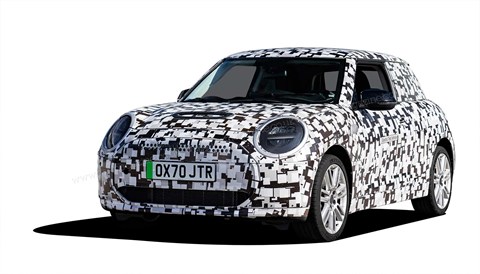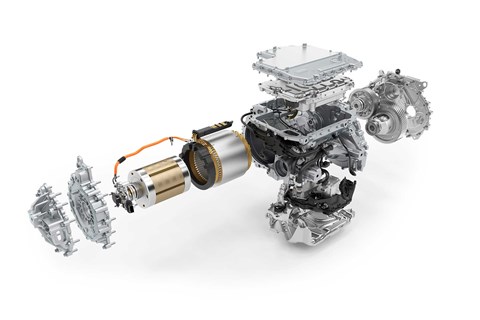► New Mini Paceman scooped
► It’s becoming an EVcrossover
► Expect to see new Paceman in 2024
Mini is a brand that will embrace electrification rapidly in the coming years – and the next Paceman will transform into a small crossover EV in 2024, CAR’s sources can reveal.
Our artist’s impression above depicts the new Mini Paceman. The baby crossover will steal some of the next-generation hatchback’s design cues inside and out, and is expected to come with all-wheel drive (a rarity in this segment), a less rakish roofline than the old Paceman and an XXL body-coloured ‘grille’.
The model is designed to land just as small electric cars assume mainstream adoption; lighter, compact cars need smaller batteries – keeping prices low, meaning bigger sales potential. It’s a virtuous circle.
New Mini family due in 2023
The Paceman will be one of the derivatives of the next Mini family (spied below), due to surface next year.

Our spies have already been spotting the new hatchback on test and it will take the existing, well-known retro formula and evolve it for its third decade in service under BMW’s tenure. The big news is that the entire Mini range will go electric.
So, on top of a new hatch, Mini’s planning a revival of the Paceman – albeit as a four-door this time round. Think of it as a Vauxhall Mokka and Ford Puma rival, albeit a little further up the premium ladder.

Bernd Körber, head of Mini has told CAR: ‘We have the next five years buttoned up and, come 2030, Mini will be fully electric. We’ll use two architectures: a bespoke EV matrix developed in Munich but built in China; and a comprehensive evolution of our existing platform.
‘A Mini is a Mini, no matter whether it’s battery or petrol-powered.’
What tech can we expect on the electric Minis?

While unconfirmed, it makes sense for Mini to make full use of BMW Group’s new ‘Generation 5’ e-motor tech that first launched in the iX3. They’re brushed motors, in order to get around using rare earths – old school, but BMW’s designed them for max efficiency and heat management.
Our sources suggest a battery capacity of around 60kWh; even with all-wheel drive, that points to an electric range of some 250 miles.